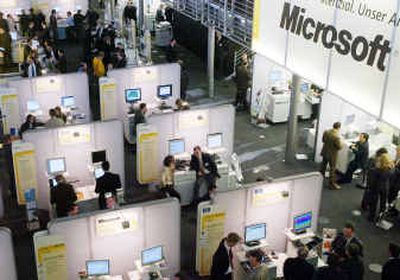Microsoft loses ruling

BRUSSELS, Belgium — A European Union court ruled Wednesday that Microsoft Corp. must immediately divulge some trade secrets to competitors and produce a version of its flagship Windows operating system stripped of the program that plays music and video.
The 91-page ruling effectively thwarts Microsoft’s attempt to delay, pending appeal, implementation of the EU’s landmark antitrust decision in March that demanded changes in the software giant’s business practices.
The implications for Microsoft are huge, though the company did not immediately disclose whether it intended to offer a version of Windows without the Media Player in Europe alone or more broadly. Software that plays media files is increasingly in demand as more consumers get broadband connections to the Internet and use their PCs as entertainment centers.
There is also the question of precisely what computer code Microsoft will share with competitors so that those companies’ programs work better on networks run by Microsoft server software.
The Luxembourg-based European Court of First Instance found that Microsoft “has not shown that it might suffer serious and irreparable damage as a result of implementation of the contested decision,” the court said.
“Microsoft’s application for interim measures is therefore dismissed in its entirety,” said the president of the court, Judge Bo Vesterdorf.
The EU was buoyant since its ruling was fully upheld and would force immediately compliance from Microsoft.
EU spokesman Jonathan Todd said the ruling “preserves the effectiveness of antitrust enforcement, in particular in fast-moving markets.”
“Implementation of the Commission’s March decision will not only benefit consumers of computer products in terms of choice of media players on computers and choice of work group servers, but also stimulate innovation,” Todd said.
Microsoft said the ruling still held encouraging comments and hoped it would help reopen settlement talks with the European Commission. “There is ample room for us to continue to press forward with cause for optimism,” said Microsoft counsel Brad Smith.
Microsoft said it would look closely at the order before deciding on its next step but will comply fully with the court order when it comes into force. The full appeals process could take up to five years.